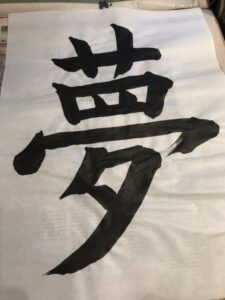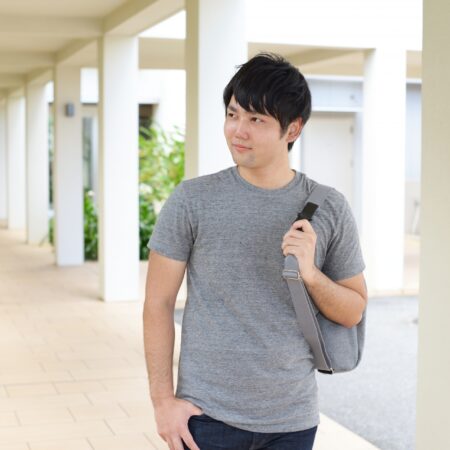日本の会社での集団面接ってどんな流れ?よくある質問は? Group Interview Process and Typical Questions by Japanese Companies

留学生の皆さんの中で、日本の会社に新卒で就職をめざしている人も多いのではないでしょうか。
日本の会社の面接は独特なので、面接を受ける前に対策をしておくことが大切です。
今回は、日本の会社の集団面接について説明します。
Contents
- 1 集団面接は一次面接によくあるスタイル Group interviews are common in the first round
- 2 大手・人気企業に多いのが集団面接 Many large and popular companies hold group interviews
- 3 集団面接での評価ポイント Evaluation points in group interviews
- 4 集団面接でよく聞かれる5つの質問 Five frequently asked questions in group interviews
- 5 留学生にとっての集団面接 Group interviews for international students
- 6 まとめ 日本の企業の集団面接に慣れよう Get used to group interviews at Japanese companies
集団面接は一次面接によくあるスタイル Group interviews are common in the first round

集団面接とは、複数の学生が1カ所に集められて一緒に行う面接です。
面接を受ける人数は、平均して一度に4~6名です。
対面で行われる場合もオンラインで行われる場合もあります。
集団面接は、選考の早い段階で実施されることが特徴です。
一次面接のケースが最も多く、中には会社説明会の後、予告なく集団面接が行われる場合もあります。
面接時間は30分~1時間以内で行われるケースがほとんどです。
応募者1人にかけられる時間は10分程度という計算です。
全員に同じ質問がされ、1人ずつ順番に答えていく流れが一般的です。
A group interview is a selection process in which several students are brought in together as a group.
The number of participants average 4-6 per group.
They are conducted both either in person or online.
Group interviews are known to be conducted early in the selection process.
The first round is the most common stage. It may take place without notice right after a company’s information session.
In most cases, interviews would last from between 30 minutes to an hour.
The estimated time spent with each applicant is about 10 minutes.
Generally, everyone answers the same questions in turn.
大手・人気企業に多いのが集団面接 Many large and popular companies hold group interviews

企業が集団面接を行う最大の理由は「応募者が非常に多いから」です。
株式を上場しているような大企業や、会社の知名度が高い企業には応募者が集中します。採用倍率が100倍や200倍を超える会社もあります。
このような会社では、応募者と個別に会う時間を取るのは難しいですが、書類だけで判断せず少しでも応募者と話すために、集団面接の形が取られています。
わずかな時間ではありますが、応募者の人柄や性格を理解してくれようとしているのです。
The main reason companies hold group interviews is because there is an overflow of applicants.
Big-name shareholders or well-known companies are often flooded with applicants.
At these companies, the ratio of applicants exceeds 100 to 200 times.
It is difficult for these companies to take the time to meet with the applicants individually. In order to talk to each applicant as much as possible, they hold interviews with the applicants in groups.
This helps them avoid making decisions based on what’s only written in the documents.
They try to figure out the applicant’s personality and character, even if it’s only for a brief time.
集団面接での評価ポイント Evaluation points in group interviews
集団面接は「一問一答方式」Group interviews are “question-and-answer”

集団面接では、質問されたことに対し、面接官の意図に合った内容を自分の言葉で話せるかどうかが選考基準となります。
日本には、面接の答え方が書かれたノウハウ本がたくさんあります。
しかし、模範回答を丸暗記したような答え方では、集団面接では他の人と答えが被ってしまうので不利になります。
一方で、アピール度を強めようとして、質問されていないことまで余分に答えてしまうと評価が下がります。
日本では、話を誇張するのは良くないと思われているからです。
質問に対して、結論から話し始め、理由を聞かれている場合でも手短に、簡潔なスピーチをするのがコツです。
The evaluation criterion for group interviews is to speak in one’s own words when responding to the interviewer’s questions.
In Japan, there are many know-hows for answering questions in interviews.
However, if you give a very model answer you will be at a disadvantage, because your answers will likely overlap with other applicants.
On the other hand, appealing too hard, such as giving an answer unrelated to the question will likely result in a lower evaluation.
This is because in Japan, you should not exaggerate your story.
In response to questions, begin your speech with a conclusion and be brief and concise with your reasons.
非言語のコミュニケーションも採点される Non-verbal communication is also graded

日本では、話し合いに参加するときの態度も厳しくチェックされます。
同じグループになった相手を無視したり、にらみ付けたりしてはいけません。
話す番になったら周囲の聞き手にアイコンタクトを送る、聞く番になったら話し手のほうを向いてうなずくことが効果的です。
日本式のうなずき方は、話に関心がある場合や、相手の意見に同意したいときなど、動作がそれぞれ異なります。
非言語のコミュニケーション方法を、事前によく理解しておきましょう。
In Japan, your attitude when participating in discussions is also rigorously monitored.
Do not ignore or glare at others in the same group.
It is advantageous for you to interview if you make eye contact with the listeners around you, and nod at the speaker when you are listening.
Japanese nodding works differently when you are interested in what is being said, or when you want to agree with the other person’s opinion.
Be sure to familiarize yourself with non-verbal communication methods well in advance.
集団面接では「減点法」に注意 Beware of “demerit method” in group interviews

集団面接には、次の面接に進むべきではない人をふるい落とす意図があります。
腕を組んだり、脚を組んだりするしぐさはマナー違反とされ、それだけで不合格になることもあります。
公の場で脚を組んでも失礼ではない国もありますが、日本では正式な会議で腕や脚を組んではいけないのです。
言葉遣いを間違わないことも大切です。
敬語に自信のない人も、「~です、ます」という丁寧語で話す、自分のことは、ぼくやわたしではなく「わたくし」と言うことを意識しましょう。
受けている会社のことは、「御社」と言うようにしてください。
Group interviews has the intention of eliminating those who should not be allowed to proceed to the next stage.
Crossing arms or legs is considered bad manners and will result in immediate rejection.
In some countries, it is acceptable to cross one’s legs in public, but in Japan, it is not allowed to cross one’s arms or legs in formal meetings.
It is important to be careful with your language.
Even if you are not confident in your honorifics, be aware that you should speak in polite speech: “~ desu, masu,” and refer to yourself as: “watakushi,” not “boku” or “watashi.”
When referring to the company, say “Onsha.”
集団面接でよく聞かれる5つの質問 Five frequently asked questions in group interviews

ここでは、集団面接を受ける前に準備しておきたい質問を5つ、ご紹介します。
Here are five questions you should prepare for before taking a group interview.
自己紹介をお願いします Introduce yourself, please
所属している大学や専門学校での専攻の内容、今取り組んでいる研究や演習、将来の目標という構成で話すのが基本です。
多くの場合、1人あたり1分間で話すように指示されます。
原稿を書いて準備するなら、200字以上300字以内で書いてください。
The basic structure of an introduction should consist of your major at a university or vocational school, the research or exercises you are currently working on, and your future goals.
In most cases, each person will be asked to speak for one minute.
If you prepare a written manuscript, please write between 200 and 300 words.
どうして当社を志望しているのですか? Why do you want to work with us?
この質問には、自分の企業選びの軸について答えるのがコツです。
会社案内の丸暗記ではなく、必ず自分自身を主語にして答えましょう。
将来やりたいこと、好きなことを重視している人もいれば、学校での専攻や得意分野を生かしたいと強く思う人もいます。
ビジネスで成功したい人もいれば、社会貢献ができる仕事がしたいという人もいます。
自分の場合はどんな軸を持っているか、答えられるようになっておきましょう。
「数ある企業の中で、なぜ当社を選んだのですか」「あなたの企業選びの軸を教えてください」という質問にも、同じ答え方ができます。
Answer this question with the criteria you used for choosing this company.
Be sure to answer this question primarily in your own words, not an answer that came from a company brochure.
Some people focus on the work they want to do or like to do in the future, while others are strongly interested in making the most of their school majors or areas of expertise.
Some of them want to succeed in business or contribute to society through their work.
Answer what values you hold.
The same answer can be given to the question, “Of all the companies, why did you choose us?” or “Tell us the key factor that led you to this company.”
あなたの強みを教えてください。Please tell us about your strengths
この質問には、自分の性格的な長所を答えるようにします。
日本の会社では、特に「総合職」を募集している場合、全学部全学科からの応募を受け付けており、専門性が高かったとしても選考の初期にはあまり有利になりません。
日本に留学している皆さんであれば、日本語が堪能になったという結果よりも、日本人と積極的に話したという行動力、日本語能力試験の勉強をやり遂げたというチャレンジ精神、計画性、粘り強さなど、プロセスについて語るようにしましょう。
Try to answer this question with your strengths.
Generalist positions in Japan accept applications from all departments in all faculties. Even if you have a high level of expertise, it does not give you much of an advantage in the early stages of the selection process.
Those who are studying in Japan should not mention the result of becoming fluent in Japanese. You should talk about the process, such as your energy in actively talking with Japanese people, your challenging spirit in completing your studies for the JLPT, your planning, and your tenacity.
あなたを漢字にたとえると何ですか? What Kanji character describes you?
 奇妙に見えるかもしれませんが、比喩の質問は、日本の会社の面接では頻出です。
奇妙に見えるかもしれませんが、比喩の質問は、日本の会社の面接では頻出です。
色にたとえる、季節にたとえる、物にたとえるなどの質問もよくあります。
漢字の場合は、お正月の書き初めなどで好まれる漢字が決まっています。例えば「夢」「愛」「新」「和」などです。
カッコイイからと言って「悪」「鬼」「神」などを選んではいけません。
色なら、赤=情熱的、青=理知的、黄=ユーモアがあるといった日本人にとっての共通認識があります。
たとえる質問を通して、日本語の常識力を判断されているのです。
「これを選ぶと良い」という正解はありませんが、理由まできちんと説明できるようになりましょう。
As strange as it may seem, metaphorical questions often come up in Japanese company interviews.
Questions that could compare yourself to a color, a season, or an object are also common.
There are certain kanji that are favored for writing at the beginning of the New Year. For example, “dream,” “love,” “new,” “harmony,” etc.
Do not choose “evil,” “ogre,” or “god” just because they are cool.
For colors, there is a common perception among Japanese people that red is passionate, blue is intelligent, and yellow is humorous.
Through metaphorical questions, you are being judged on your commonsense ability in Japanese.
There is no correct answer, but you should be able to explain the reason for your choice.
何か質問はありますか? Any questions?
面接の最後には、応募者のほうから面接官に質問をする時間があります。
これは、応募者が会社にどれだけ興味を持っているかを判断するための質問です。
たとえ、給料などの条件を聞きたいと思っても、日本では集団面接の場で聞くのはマナー違反とみなされます。
興味のある事業があるのなら、その事業の将来の展望を聞くのは好ましく、逆に自分が配属される可能性といった個人的な質問はすべきではありません。
質問をしないのも、志望度が低いとみなされて評価が下がります。
ほかの人が聞いても参考になるような質問を、事前に考えておきましょう。
At the end of the interview, there is enough time for applicants to ask the interviewer questions.
These questions are intended to determine how interested the applicant is in the company.
Even if you want to ask about the salary or other conditions, it is considered bad manners to ask in a group interview in Japan.
If there is a business in which you are interested in, it is preferable to ask about its future prospects; conversely, you should not ask personal questions, such as possibilities of being assigned to specific positions.
The absence of questions is perceived as holding low levels of aspiration, and it will lower your evaluation.
Think in advance about questions that will be meaningful to others.
留学生にとっての集団面接 Group interviews for international students
グループは無作為に選ばれる Groups are chosen at random
集団面接で同じグループに招かれる応募者は、無作為に選ばれています。
外国人留学生だけが別グループになるとは限らず、日本人学生と同じグループで同じ質問がされるケースがほとんどであると認識しておきましょう。
参加する人の出身校や学部もさまざまです。
自分とは異なる考え方を持っている可能性がありますが、自分の意見も自信を持って発表してください。
Applicants who are invited to group interviews are selected at random.
Be careful, your group may not be only international students. Most of the time, you will in the same group as other Japanese students and will be asked the same questions as the Japanese students.
Participants come from many different schools and faculties.
They may hold different ideas from your own, but you should present your opinions with confidence.
日本人と同じ基準で選考される Selected by the same standard as Japanese
日本の企業に対して実施されたアンケートによると、外国人留学生を採用している理由は、「社内の多様性を高め、職場を活性化するため」と「国籍に関わらず選考を行った結果、留学生が採用された結果」が同率で1位となっています。
※平成26年度 経済産業省委託調査「外国人留学生の就職及び定着状況に関する調査」より
留学生が特別視されているわけではなく、以前から日本の学生と留学生は同じ基準で採用されているのです。
According to a survey conducted on Japanese companies: “to increase diversity within the company and invigorate the workplace” and “foreign students were successful in the selection process regardless of nationality” were both ranked first for reasons for hiring foreign students.
*“Survey on Employment and Retention of International Students,” a survey commissioned by METI in 2014.
International students are not given special treatment; conventionally, Japanese and international students are employed under the same standard.
まとめ 日本の企業の集団面接に慣れよう Get used to group interviews at Japanese companies

人気の企業には応募者が集中するため、一次面接では集団面接が実施されています。
日本の学生と留学生は同じ基準で採用されます。
減点法で評価されるため、日本語の常識や日本のビジネスマナーを守り、聞かれたことに答えることを心がけましょう。
うなずきやアイコンタクトも実践し、同じグループの人への気遣いをしましょう。
日頃から日本人と話し慣れておくと、集団面接で緊張せずに済むのではないでしょうか。
Since popular companies are inundated with applicants, group interviews are conducted for the first round of interviews.
Japanese and international students are selected by the same standard.
Since you will be evaluated on a demerit method, be sure to follow Japanese common sense and Japanese business etiquette, and answer questions as they are asked.
Nodding and eye contact should also be practiced and be considerate of other applicants in the same group.
If you are accustomed to talking to Japanese people on a regular basis, you will not be nervous during group interviews.





